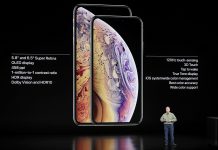Apple and the Federal Bureau of investigation are headed to court over a single but very important point. The privacy of phone owners to keep whatever their secrets may be away from everyone. That includes in this case both Apple and the FBI as the company is feeling pressure to change their privacy policy.
The FBI wants Apple to open the encrypted iPhone of Syed Farook and his wife Tashfeen Malik who were the young married couple who killed 14 people at a holiday party in San Bernardino, California, the legal implications of encryption and Apple’s business model must have been the furthest thing from the minds of anyone involved.
But since the death of Farook and his wife Malik in a hail of bullets last December, Farook’s iPhone has become the battleground for one of the most important fights in tech policy, and, for its manufacturer, potentially one of the most costly.
What is inside that iPhone could possibly prevent more terrorist attacks from happening. However, Apple contends that once they open that phone then it could pave the way for a number of invasion of privacy issues. Apple is sympathetic to the FBI but there stance is all about keeping whatever their customers feel should be private is protected and if that means terrorists then so be it.
Friday in the request to the court to force Apple’s assistance, attorneys for the government wrote the following: “The FBI has discovered, for example, that on December 2, 2015, at approximately 11:14 a.m. [15 minutes after opening fire], a post on a Facebook page associated with Malik stated, ‘We pledge allegiance to khalifa bu bkr al bhaghdadi al quraishi,’ referring to Abu Bakr Al Baghdadi, the leader of Islamic State of Iraq and the Levant.” What more might Malik have known, and is it locked in her husband’s phone?
The Department of Justice says that Apple is the only entity that can help them, and so it wants the tech company to intentionally and thoroughly undermine their own security – “something that would have an impact on this one device”, as the White House press secretary, Josh Earnest, put it on Wednesday. But for Apple, this is a battle that extends well past one iPhone. Apple sells a lot of things – 74.7m iPhones in the last quarter, for example – but its biggest selling point these days is privacy.
So the question that will play out over the next weeks and months will be does Apple have the right to protect the privacy of their customers at the expense of the United States government.














